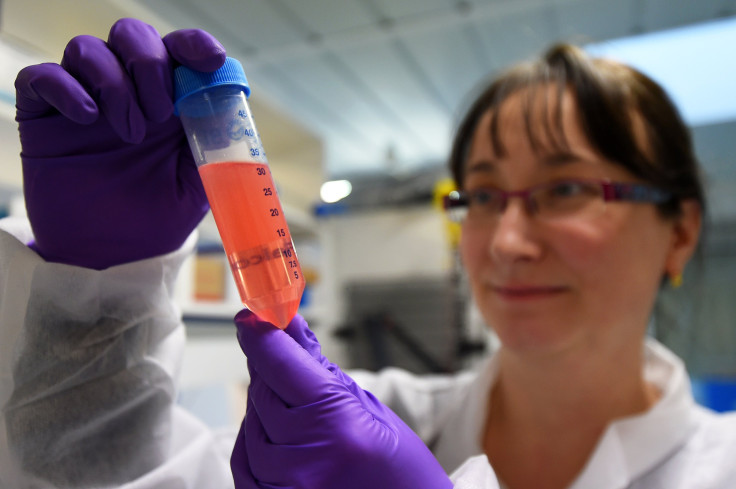Finding A Cure for Cancer Depends On Enrollment Of Clinical Trial Volunteers, Yet Fears Remain

Almost every cancer drug in use today was first tested in a clinical trial, where patients volunteer to test new treatments. Though these studies are crucial to medical breakthroughs, past surveys indicate that only 4 percent of cancer patients enroll in clinical trials each year. Memorial Sloan Kettering Cancer Center (MSK) set out to see why so few people participate by sponsoring a national survey.
The results suggest possible misperceptions and some distrust. Only a third of respondents said they are likely to enroll in a clinical trial, while more than half (55 percent) said they worry about side effects and safety. Meanwhile, physicians, when asked what they believe actual patients might say, answered that nearly two-thirds of patients would be concerned about side effects and the same number would fear being selected to receive a placebo and not the real treatment if enrolled in a clinical trial.
However, the “vast majority” of clinical trials do not involve a placebo, says Dr. Paul Sabbatini, deputy physician-in-chief for clinical research at MSK. And, typically, all patients receive standard treatment in a clinical trial with only some patients receiving the standard plus the experimental treatment.
“It is critical that the cancer community address common myths and misunderstandings,” says Sabbatini.
A Brief Sketch
According to Dr. Arun Bhatt, president of a medical research firm, the world's first clinical trial was conducted by King Nebuchadnezzar and recorded in the Bible’s book of Daniel. During his rule, Nebuchadnezzar issued a public health edict instructing citizens to consume only meat and wine. Though the king believed this diet alone would keep people in sound physical health, young royals objected and requested they be allowed to follow their preferred vegetarian diet of legumes and water. Permitting them to eat as they pleased for just 10 days, Nebuchadnezzar examined a few participants from both groups and concluded the vegetarians appeared better nourished than the meat-eaters.
Bhatt describes this as the first “open uncontrolled human experiment,” a forerunner to the experiments of Dr. James Lind, a physician who conducted a comparative trial for a treatment for scurvy while working on board a ship. Published in 1753, Lind's “Treatise on Scurvy” guided future scientific experiments and eventually led to the use of a placebo in studies of treatments. A placebo, an innocuous substance that has no effect on your body, serves as a comparison point to the new treatment.
Today, clinical trials are used to research the effects of new drugs, new surgical procedures, new devices, or even new methods meant to improve existing treatments.
Usually in a clinical trial, one group of patients receives the new treatment plus the standard treatment, while a comparison group receives the standard treatment. Costs are typically covered by a patient’s insurance and the sponsor of the trial. Finally, patients are free to leave a trial at any time.
Survey Says
Last fall, Millward Brown Analytics canvassed a total of 1,511 Americans, ranging in age from 18 to 69, plus 594 physicians, who specialize in oncology, hematology, gynecology, and other disciplines. Each of these medical specialists has had conversations with patients about clinical trials.
The results show that while only 40 percent of Americans have a positive overall impression of clinical trials, after reading a brief statement about these studies, 60 percent claimed their impression was favorable.
A range of concerns shaped respondents’ distrust, from worry over side effects (55 percent), uncertainty about costs (50 percent), inconvenience of location (48 percent), and worries about getting a placebo (46 percent). A third of respondents said they simply felt skeptical of experimental treatments, while the same number did not wish to feel like a “guinea pig.”
Surprisingly, even more physicians — 53 percent — suggested patients might hesitate due to a reluctance to feel like a “guinea pig.” More than half of the physicians also considered clinical trials late in treatment (though many clinical trials begin early in treatment), and just shy of one-third said they discuss the topic with their patients at the start of therapy. About 28 percent said they consider a clinical trial to be “a treatment of last resort.”
Are these concerns unrealistic?
Published studies claim that clinical trials inadequately or under report their results, especially safety results. One analysis of 300 trials with serious adverse events found that slightly more than a quarter simply did not publish their results, while nearly a third did not correctly publish the number of serious adverse events. According to the authors of this analysis, only 11 percent accurately published and described their serious events. Importantly, the lion’s share of clinical trials are conducted without public funds and therefore don’t even need to report their results.
According to MSK, cancer patients who participate in clinical trials have the opportunity to receive the newest drugs years before they are available and to obtain the highest level of care and oversight. While that may be the case, an experimental treatment is still experimental. Naturally, patients will do what’s best for them.



























